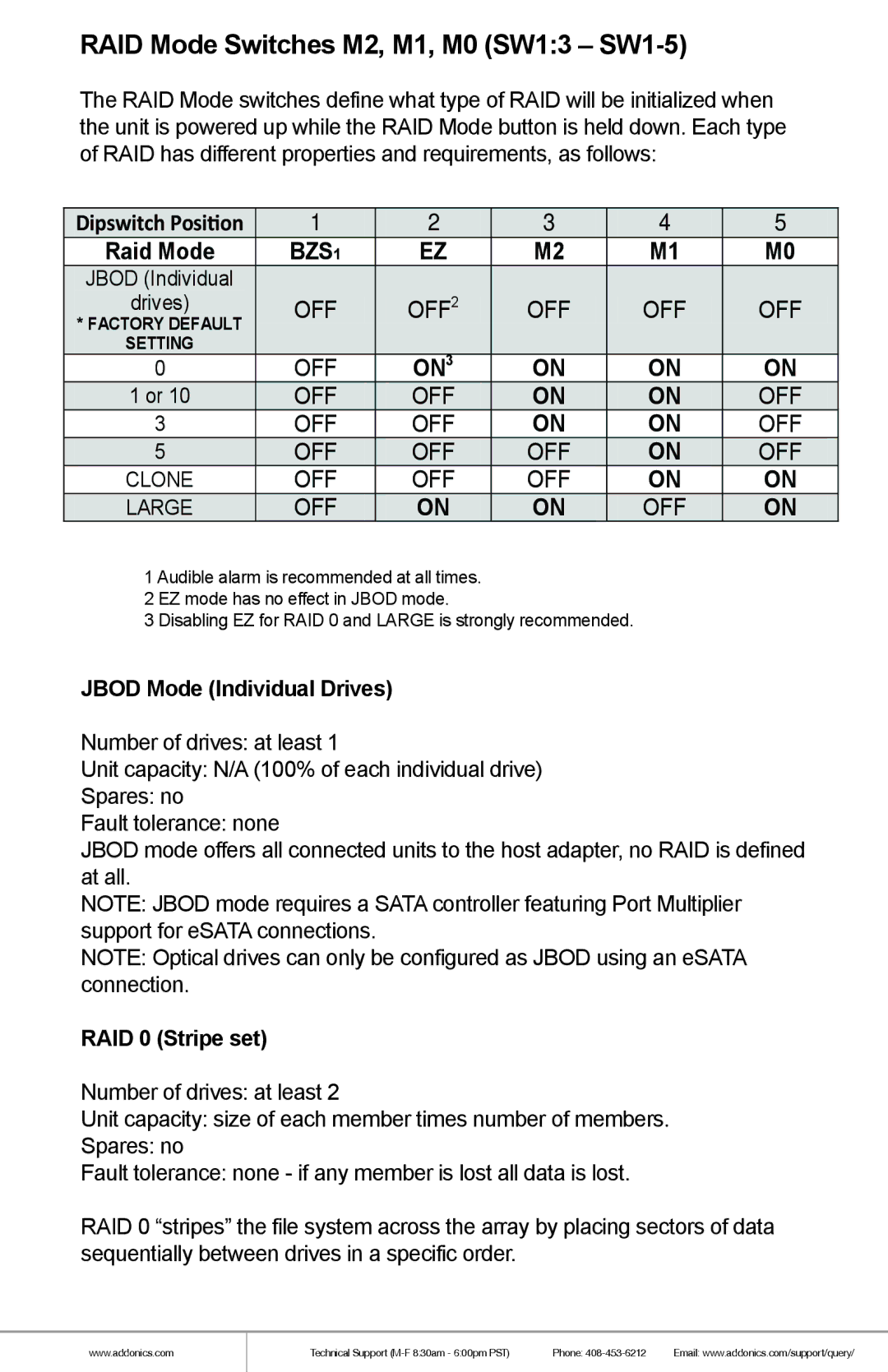
RAID Mode Switches M2, M1, M0 (SW1:3 – SW1-5)
The RAID Mode switches define what type of RAID will be initialized when the unit is powered up while the RAID Mode button is held down. Each type of RAID has different properties and requirements, as follows:
| Dipswitch Position | 1 | 2 | 3 | 4 | 5 | |
| Raid Mode | BZS1 | EZ | M2 | M1 | M0 | |
| JBOD (Individual |
|
|
|
|
|
|
| drives) |
| OFF | OFF2 | OFF | OFF | OFF |
| * FACTORY DEFAULT |
|
|
|
|
|
|
| SETTING |
|
|
|
|
|
|
0 |
| OFF | ON3 | ON | ON | ON | |
| 1 or 10 | OFF | OFF | ON | ON | OFF | |
3 |
| OFF | OFF | ON | ON | OFF | |
5 |
| OFF | OFF | OFF | ON | OFF | |
| CLONE | OFF | OFF | OFF | ON | ON | |
| LARGE | OFF | ON | ON | OFF | ON | |
1 Audible alarm is recommended at all times.
2 EZ mode has no effect in JBOD mode.
3 Disabling EZ for RAID 0 and LARGE is strongly recommended.
JBOD Mode (Individual Drives)
Number of drives: at least 1
Unit capacity: N/A (100% of each individual drive)
Spares: no
Fault tolerance: none
JBOD mode offers all connected units to the host adapter, no RAID is defined at all.
NOTE: JBOD mode requires a SATA controller featuring Port Multiplier support for eSATA connections.
NOTE: Optical drives can only be configured as JBOD using an eSATA connection.
RAID 0 (Stripe set)
Number of drives: at least 2
Unit capacity: size of each member times number of members.
Spares: no
Fault tolerance: none - if any member is lost all data is lost.
RAID 0 “stripes” the file system across the array by placing sectors of data sequentially between drives in a specific order.
www.addonics.com
Technical Support | Phone: | Email: www.addonics.com/support/query/ |
